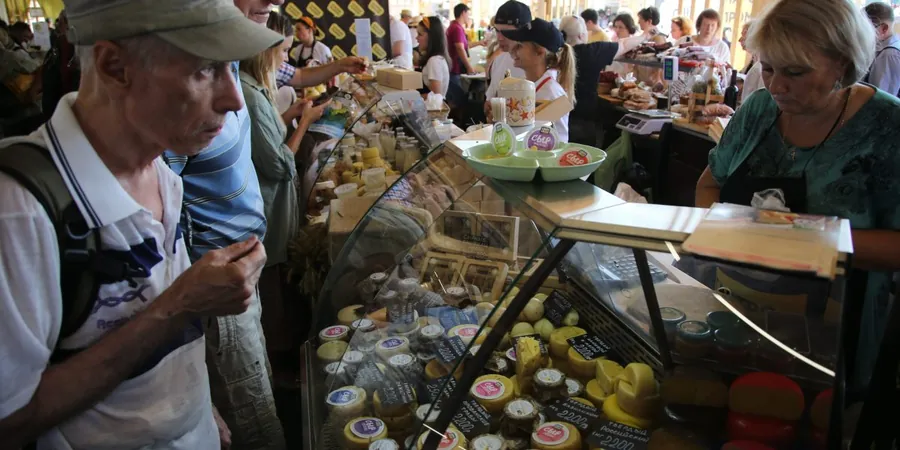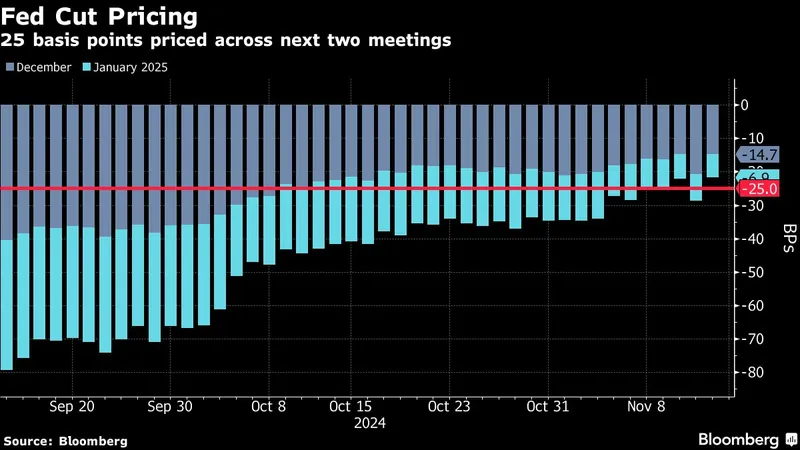
Soaring Food Prices in Russia: A Looming Crisis for the Kremlin
2024-11-15
Author: Ken Lee
Introduction
The escalating cost of essential food items in Russia has surged alarmingly this year, raising serious concerns for the Kremlin and its citizens alike. Data from the Federal Statistics Service reveals that a kilogram of potatoes has seen a staggering price increase of at least 73% since January, while the cost of butter has jumped by over 30%. Other staples, such as onions and beets, have risen by more than 20%, with sour cream, milk, bread, and fish also experiencing hikes of 12% to 15%.
Personal Testimony
Tatyana, a 72-year-old pensioner from Kirov, shares her distressing experience of the financial burden posed by these soaring prices. Having to allocate almost two-thirds of her pension to food — an increase from about half previously — she now finds herself unable to purchase luxury items like exotic fruits. For the first time since the onset of the conflict in Ukraine, she will have to forgo the traditional New Year dish of red caviar.
A Continuing Problem
The struggle with rising food prices isn't a new phenomenon for Russians, who have faced escalating costs well before this year's spike. Complaints about food prices inundated President Putin during a citizen call-in event last year, and the situation has now become critical. Government officials, from the Ministry of Agriculture to the Prosecutor General’s Office, are increasingly alarmed at the possibility of containing these price surges.
Government Responses
In a desperate move to combat inflation, the Bank of Russia has hiked its key interest rate to a staggering 21%, a record high. Policymakers have noted that the balance of risks related to inflation remains heavily skewed towards further increases, forecasting a 2024 inflation rate between 8% and 8.5%. Despite these efforts, Tatyana observes that in her town, staples like milk, butter, eggs, and bread are priced at least double compared to last year.
Investigations and Monitoring
Government reactions are mounting, with Russian Prosecutor General Igor Krasnov launching an investigation into the price hikes perpetrated by milk producers. Prime Minister Mikhail Mishustin has charged the Ministry of Agriculture to ensure sufficient supplies of fruit and vegetables, while Deputy Prime Minister Dmitry Patrushev has mandated daily monitoring of the food market to implement stabilizing measures.
Expert Opinions
Experts suggest that the government's approach to tackling the issue may be misguided. Vladislav Inozemtsev from the Middle East Media Research Institute remarked that the authorities seem to wish for the public to perceive the food crisis as stemming from the actions of producers and traders rather than from the consequences of the war in Ukraine. He notes a stark contrast in government concern over food price increases now compared to similar past crises.
Persistent Inflation
While policies aimed at curtailing demand have had a minimal impact on inflation — with annual growth slightly decreasing from September to October — food inflation remains stubbornly high at over 9%. This persistent inflation is driven by rising costs in logistics and production, influenced by sanctions and a weakening ruble. Furthermore, disruptions in traditional supply chains have led to a scarcity of important imported goods.
Labor Shortages and Imports
The war in Ukraine has also exacerbated labor shortages across various sectors, with farming particularly hard-hit. Agricultural Minister Oksana Lut estimates a labor deficit of around 200,000 workers, compounded by adverse weather impacting harvest yield. This has created an increased dependency on food imports; for instance, Russia has begun importing butter from Turkey and the UAE, while Azerbaijan contributed to alleviating an egg scarcity earlier this year.
Recommendations and Concerns
In an effort to stabilize the food market, the Agriculture Ministry and other relevant bodies have recommended that food producers and retailers consider reducing prices on specific goods. Nonetheless, Tatiana Stanovaya from R.Politik warns that coercive measures by authorities, while historically prevalent, may yield only temporary relief and are not a sustainable solution to the underlying issues plaguing the food supply chain.
Conclusion
As the Russian government grapples with this urgent crisis, the sustainability of its responses remains highly uncertain, leaving millions of citizens to wonder how much longer they can afford basic necessities. The looming question persists: will the state mount a successful defense against this spiraling crisis, or will it spiral further into chaos?


 Brasil (PT)
Brasil (PT)
 Canada (EN)
Canada (EN)
 Chile (ES)
Chile (ES)
 España (ES)
España (ES)
 France (FR)
France (FR)
 Hong Kong (EN)
Hong Kong (EN)
 Italia (IT)
Italia (IT)
 日本 (JA)
日本 (JA)
 Magyarország (HU)
Magyarország (HU)
 Norge (NO)
Norge (NO)
 Polska (PL)
Polska (PL)
 Schweiz (DE)
Schweiz (DE)
 Singapore (EN)
Singapore (EN)
 Sverige (SV)
Sverige (SV)
 Suomi (FI)
Suomi (FI)
 Türkiye (TR)
Türkiye (TR)